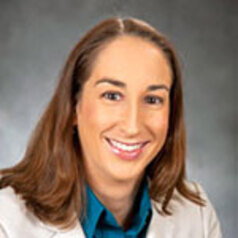
Deidre Popovich
Associate Professor of Marketing, Texas Tech University
Deidre Popovich is an Associate Professor of Marketing in the Rawls College of Business at Texas Tech University. She earned a Ph.D. in Marketing from Emory University and an MBA from Vanderbilt University. Her research focuses on consumer psychology, including how decision contexts and information cues can influence consumer decision making and self control. Her research has appeared in journals such as the Journal of Consumer Psychology, Journal of Retailing, Journal of Public Policy & Marketing, and Behavior Research Methods, among others. Her previous industry experience includes working as a marketing research manager for a national nonprofit organization and as a strategy consultant for a top-ten healthcare consulting firm.
Less ![]()
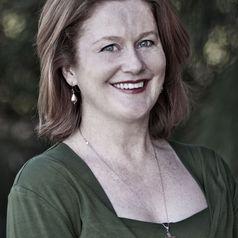
Deirdre McGhee
Researcher and Senior Lecturer, University of Wollongong, APA Sports Physiotherapist, University of Wollongong
Dr Deirdre McGhee is a researcher for Breast Research Australia (BRA), a Senior Lecturer in the School of Medicine, University of Wollongong and an APA Sports Physiotherapist.
She has extensive experience as a clinician, researcher and teacher in the area of breast support. This includes treatment of the musculoskeletal symptoms experienced by women with large breasts and breast support during exercise for female athletes and active women. Her PhD in breast biomechanics was in relation to both sports bra design and bra fit, which included a sports bra patent designed specifically for women with large breasts. She has written several evidence-based educational resources for women on breast support and bra fit during physical activity, including guidelines for Sports Medicine Australia, “Exercise and breast support” which was the first sporting body in the world to introduce such guidelines and the App, Sports bra (available on iTunes & www.bra.edu.au), which is the only app in the world that contains evidence-based information to assit women choose a well-fitted, supportive sports bra that suits their exercise needs.
Contact details: [email protected].
Less ![]()
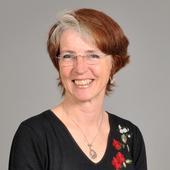
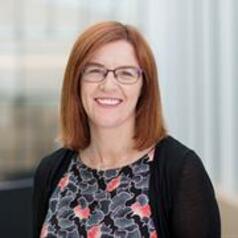
Deirdre Fitzgerald Hughes
Senior Lecturer, Clinical Microbiology, RCSI University of Medicine and Health Sciences
Healthcare-associated infections (HCAI) are those that occur in patients receiving medical treatment in a hospital, long-term care facility or as an outpatient. These infections increasingly involve bacteria that are resistant to most antibiotics and are therefore difficult to treat. The organisms that represent the most risk to human health, and for which we have limited treatment options are the ESKAPE pathogens (Enterococcus faecium, Staphylococcus aureus, Klebsiella pneumoniae, Actinetobacter baumannii, Pseudomonas aeruginosa, Enterobacter Spp.). My main areas of interest are the molecular epidemiology, transmission and pathogenesis of HCAIs, particularly ESKAPE pathogens and Clostridium difficile. Our group explores how these aspects of HCAIs can underpin the development of more effective infection control strategies and novel anti-infective therapeutics.Past and current projects have investigated:The significance of the host immune response and bacterial virulence to the clinical outcome of bloodstream infections caused by S. aureus including methicillin-resistant S. aureus (MRSA).The patterns and transmission of antibiotic-resistance genes in Gram-negative pathogens that produce extended spectrum beta-lactamases (ESBL).The potential contribution of horizontal gene transfer within biofilms to the evolution of S. aureus.Detection and transmission of antibiotic-resistance pathogens such as Klebsiella pneumoniae and vancomycin resistant enterococci (VRE) in the clinical environment adjacent to patients.The effectiveness of targeted antimicrobial peptides and other novel agents, against specific infections involving antibiotic resistant pathogens such as MRSA (catheter-associated and wound infection), ESBL-producers (urinary tract and bloodstream infections)and P. aeruginosa (chronic respiratory infections) and infections involving multiple organisms (diabetic foot infections).
Less ![]()
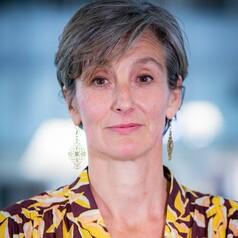
Delphine Dion
Full Professor, Consmption and Market dynamics, ESSEC
I am a Full Professor at ESSEC Business School. My current research projects explore market dynamics and practices related to environmental issues. In particular, I analyze market dynamics related to second-hand markets and materials in the luxury industry.
My research has been published in many books and leading academic journals, including the Journal of Marketing, Journal of Consumer Research, Journal of the Academy of Marketing Science, Journal of Business Ethics, Journal of Retailing, Journal of Marketing Management, Journal of Business Research, and few others. I have received several awards for my scientific activities, including the 2018 ESSEC Foundation Research Award.
I am Associate Editor of the International Journal of Research in Marketing. I serve on the Editorial Review Board of the Journal of Consumer Research and the Journal of Business Research. I have received the 2020 Outstanding Editorial Review Board Member Award of the International Journal of Research in Marketing.
I teach courses related to the sociology of consumption and markets. I have received the 2023 special jury award from the ESSEC Foundation.
Less ![]()
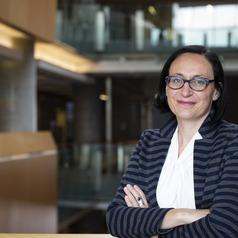
Delphine Nakache
Law Professor, L’Université d’Ottawa/University of Ottawa
I am a Full Professor at the Faculty of Law (French Common Law section) of the University of Ottawa (Canada). I teach courses – both in English and French-in the areas of public international law, constitutional law, and immigration, citizenship, and refugee law. My research, which is empirical and collaborative in nature, focuses on migrants with precarious status and marginalized immigrants, and on the concept of "vulnerable migrant" in national and international legal instruments.
Less ![]()
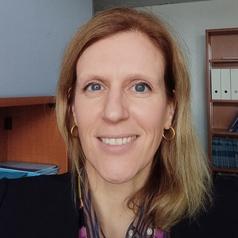
Delphine Raucher-Chéné
Professeur adjointe en Psychiatrie, McGill University
Dre Raucher-Chéné a obtenu son diplôme français de médecine en psychiatrie en 2010 et a travaillé pendant dix ans en tant que clinicienne à temps plein dans un service psychiatrique universitaire en France. Elle a poursuivi sa formation en recherche en entreprenant une maîtrise en neuropsychologie (2012), un doctorat en psychologie (2018) et un boursier postdoctoral (2019-2021) à McGill/Douglas avant de se joindre à l’Université McGill à titre de professeure adjointe en 2023.
Le programme de recherche du Dre Raucher-Chéné est axé sur le développement d’une compréhension globale de la psychopathologie cognitive des maladies mentales graves (c.-à-d. le trouble bipolaire et le trouble du spectre de la schizophrénie), à tous les stades, de la neuro-imagerie à la remédiation.
Less ![]()
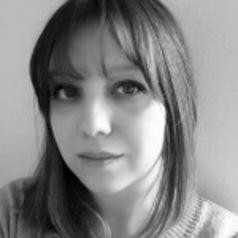
Demet Dincer
Lecturer in Interior Architecture, UNSW Sydney
Demet Dincer is a lecturer in the UNSW Faculty of Built Environment, Interior Architecture Program. She received her B.Sc. in Architecture from Yildiz Technical University (2007) as the highest-ranking honour student and M.Sc. in Architectural Design from Istanbul Technical University (2010). She was enrolled in the Urban Design Program in TU Delft for her M.Sc. studies (2009). Demet went to Columbia University as a Fulbright Visiting Researcher for her doctoral studies (2013-14) and received her PhD from Istanbul Technical University (2016). She has worked as a post-doctoral researcher at IKEA x UTS Future Living Lab at the University of Technology Sydney (2018-19) and as an Assistant Professor at Istanbul Kultur University, affiliated with architecture and design studies. Most of her research has been funded by the Scientific and Technological Research Council of Turkey, and she has also been an executive board member of the Fulbright Alumni Association Turkey.
Less ![]()
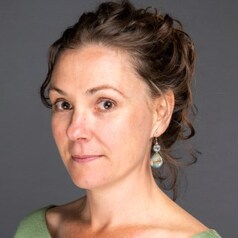
Denielle Perry
Associate Professor, School of Earth and Sustainability, Northern Arizona University
With a political ecology lens and through use of multiple methods, I investigate river governance issues around the globe. Such research at the nexus of policy, discourse, and spatial analysis is a powerful platform for solving some of the most pressing environmental problems of our time related to the interconnected freshwater, biodiversity, and climate crises, as well as environmental justice and sustainability concerns.
My current projects examine how the creation and application of protection and restoration policies on river systems around the globe can engender ecosystem service protection, climate adaptation, riverine ecosystem resilience, and social-ecological sustainability.
Less ![]()
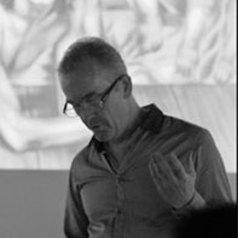
Denis Flannery
Associate Professor in American Literature, University of Leeds
I have teaching and research interests across American, Irish and English popular culture, including music, literature, theatre, cinema and theory with a particular emphasis on the interrelations between culture, writing and affect.
Henry James has been foundational for my work in many different ways. James featured prominently in my book On Sibling Love and I have published on the figure of apostrophe and its relationship to mourning in recent James-fixated fiction by writers like Alan Hollinghurst as well as on the relationship between devotion and queer subjectivity in James's short stories.
Cinema and visual culture have played an important part in my other work which has looked, for example, at Fincher's 1995 film Seven in terms of queer theory and more recently at the role of the pair in Robert Mapplethorpe's photography. But my more recent work has focused on Theatre, Irish Studies and creative writing. My work on theatre concentrates on the Dutch Theatre company Toneelgroep, Amsterdam (TGA). I have recently completed a major article about TGA's production of Tony Kushner's Angels in America paying attention to the "presence" of David Bowie's music and persona in their reading of those plays.
Less ![]()
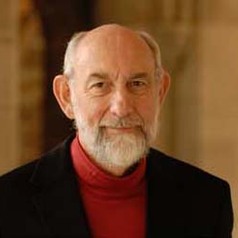
Denis Muller
Senior Research Fellow in the Centre for Advancing Journalism, University of Melbourne
Denis Muller was born in New Zealand in 1948 and emigrated to Australia in 1969. He was educated at Rosmini College, Auckland, and at the University of Melbourne.
After three years on suburban newspapers in Auckland, he joined The Sydney Morning Herald as a sub-editor in 1969. In 1978 he joined The Times, London, also as a sub-editor, before returning to take up the position of Chief Sub-editor of the Herald in 1980.
He subsequently held the positions of Night Editor, News Editor and Assistant Editor (Investigations) at that newspaper, until joining The Age, Melbourne, as Associate Editor in 1986.
At both newspapers, his responsibilities including representing the papers as an advocate before the Australian Press Council.
From 1984 until he left newspapers in 1993, he worked closely with Irving Saulwick, one of Australia's leading public opinion pollsters, in the management and writing of the Saulwick Poll which was published in The Age as AgePoll and in the Herald as HeraldSurvey.
In 1990 he was accepted as a mature-age student into the Public Policy program at the University of Melbourne. He completed a Postgraduate Diploma in 1992 and a Master's degree in 1994.
In 1993 he left The Age to take up a position as Group Manager, Communications, at the Board of Studies, Victoria.
In 1995 he established the research consultancy Denis Muller & Associates, and was appointed a Senior Research Fellow in the Centre for Public Policy at the University of Melbourne.
In 2006 he completed a doctoral thesis on media ethics and accountability, and was appointed a Visiting Fellow at the Centre for Public Policy, where he has taught in the Public Policy program since 1997.
He has also taught research methodology at RMIT University, and teaches defamation law to practising journalists through the Communication Law Centre.
Less ![]()
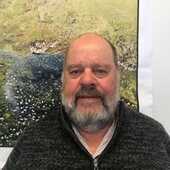
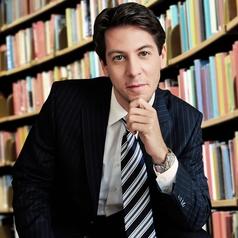
Denis Schweizer
Professor of Finance, Concordia University
Professor Dr. Denis Schweizer studied business administration at Johann Wolfgang Goethe-University in Frankfurt/Main. In April 2008 he completed a doctorate at European Business School (EBS) in Oestrich-Winkel with a thesis entitled “Selected Essays on Alternative Investments”. During his doctorate, he worked as research assistant at the PFI Private Finance Institute/ EBS Finance Academy in Oestrich-Winkel and was responsible for the conception of executive education programs. Furthermore, he gained teaching experience as he regularly held trainings in executive education. He was awarded the titles of Financial Risk Manager (FRM) and Certified Financial Planner (CFP).
In August 2008 Denis Schweizer was appointed Assistant Professor of Alternative Investments at WHU – Otto Beisheim School of Management. He published numerous articles in the field of alternative investments, fintech and corporate finance in renowned journals and books, received multiple research awards. His innovative research ideas received multiple competitive research grants from e.g. the Social Sciences and Humanities Research Council (SSHRC) and the Education of Good Governance Fund of Autorité des Marchés Financiers of about $1,000,000.
He is also on the Editorial Review Boards of the Entrepreneurship Theory and Practice and Small Business Economics and is Associate Editor for Finance Research Letters and Banking and Finance Review. Denis Schweizer is teaching at all university levels including BSc, MSc, MBA, and PhD-level as well as in executive education programs. His teaching excellence was recognized with four WHU – Otto Beisheim School of Management best teacher awards. From September 2011until January 2012 he was a visiting scholar at New York University, USA. In August 2014 he was appointed as Associate Professor at Concordia University John Molson School of Business and promoted to Full Professor in 2020. He received the Manulife Professorship in Financial Planning in November 2015. During the period June 2016 to June 2019he was appointed as director of the Van Berkom Small-Cap Investment Management Program. During his tenure as Director of the Van Berkom Small-Cap Investment Management Program, the investment fund of $1m invested in North American small-caps portfolio outperformed its benchmark by ~40% (simple alpha based on invested capital) in the 2017-2018 period.
Areas of expertise
- Alternative Investments
- Blockchain
- Chinese Capital Markets
- Crowdfunding
- Cryptocurrency
- Commodities
- Corporate Finance
- Entrepreneurial Finance
- Fintech
- Fraud
- Hedge Funds
- Insider Trading
- Initial Coin Offerings
- Innovation
- Rare Earth Material
- Real Estate
- Risk Management
- Venture Capital
Less ![]()
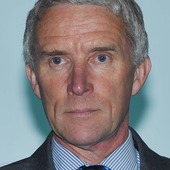
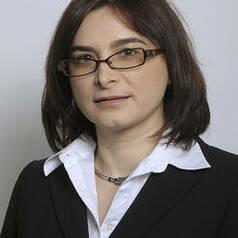
Denisa Mindruta
Professeur Associé en Stratégie et Politique d'Entreprise, HEC Paris Business School
Denisa Mindruta is an Associate Professor of Strategy at HEC Paris. She obtained her PhD in strategic management from the University of Illinois at Urbana-Champaign. She studies how organizations and individuals within organizations create and appropriate value through strategic partnering. She has examined these issues in a variety of contexts that involved upper echelon leaders, teams, firms, universities, and non-profit organizations. A number of her current projets seek to understand how the two-sided nature of partnerships enable and constraint partner choice and the penalties associated with miss-matching.
Less ![]()
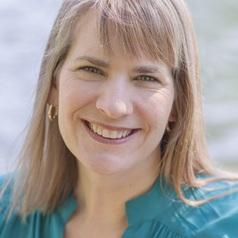
Denise Daniels
Hudson T. Harrison Endowed Chair of Entrepreneurship, Wheaton College (Illinois)
Denise is the inaugural Hudson T. Harrison Endowed Chair of Entrepreneurship at Wheaton College (IL). Previously she was Professor of Management at Seattle Pacific University. She earned a Ph.D. in Organizational Behavior from the University of Washington. Her scholarly interests include meaningful work, Sabbath, leadership, gender, and motivation; her recent work has focused on how people understand and engage their faith at work.
Less ![]()
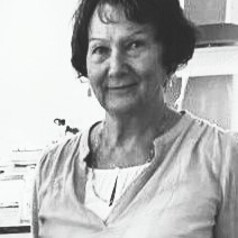
Denise Gamble
Visiting Research Fellow, School of Humanities, University of Adelaide
After gaining my PhD in philosophy at University of Sydney in 1988 I spent 1989-91 at Rutgers University, NJ, USA as a visiting research fellow and then a visiting professor before joining the philosophy department at University of Adelaide in 1992. I retired in in 2018 but remain connected to the department as an honorary research fellow and postgraduate supervisor. My fields of expertise have ranged over philosophy of cognitive science and mind, philosophy of language, philosophy of criminal law, philosophy of film, professional ethics, medical ethics, and the moral philosophy of Immanuel Kant. I am currently working on a teleological reconsideration of Kant's Humanity Principle.
Less ![]()
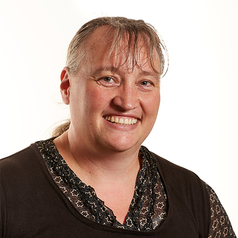
Denise Hawkes
Professor in Education Economics, Anglia Ruskin University
Professor Denise Hawkes is interested in inclusive economics models of education and labour markets. Her research is focused on higher education transitions, equality, diversity and inclusion in higher education and the value of doctoral education. She also works on modelling female labour supply decisions with a particular focus on the link to the timing of motherhood.
Denise Hawkes is the Chair of the Education and Training Committee at the Royal Economic Society.
Less ![]()
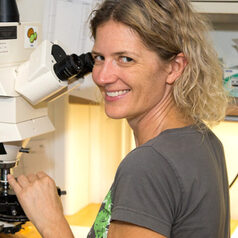
Denise Kulhanek
Professor of Marine Micropaleontology, University of Kiel
As a marine micropaleontologist and paleoceanographer, I explore the environmental conditions of the past, using marine microfossils to study their evolution in interaction with the Earth's climate.
Less ![]()
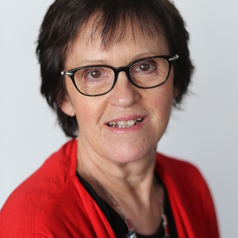
Denise Wilson
Associate Dean Māori Advancement | Professor Māori Health, Auckland University of Technology
Denise is an Associate Dean Māori Advancement and Professor of Māori Health at Auckland University of Technology.
Denise advocates and undertakes research focused on improving health and social outcomes for whānau (extended family networks) Māori (Indigenous peoples of Aotearoa New Zealand), especially those affected by violence and trauma, and improving health and social service engagement, cultural responsiveness, and workforce development.
Denise is a member of Te Pūkotahitanga (the Tangata Whenua Ministerial Advisory Group for Family Violence and Sexual Violence Prevention). Denise has been a member of the Family Violence Death Review Committee, the Chair of the Family Violence Prevention Investment Advisory Board, the Deputy Chair of the Family Violence Prevention Expert Advisory Group, and a member of the Health Quality & Safety Commission's Te Rōpū Māori (Māori Advisory Group). Denise is a Fellow of the Royal Society Te Apārangi, American Academy of Nurses, and College of Nurses Aotearoa (New Zealand).
Less ![]()
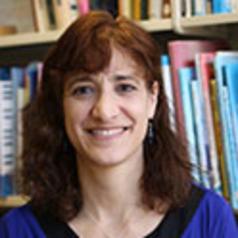
Denise E. Agosto
Professor of Library and Information Science, Drexel University
Dr. Agosto is Professor in the College of Computing & Informatics at Drexel University, where she serves as Director of the Masters of Science in Library and Information Science program. Her research investigates young people’s use of information and information technologies, the role of social context in shaping youths’ information practices, and public library services. She is widely published in these areas and is the recipient of numerous teaching and research awards.
Less ![]()
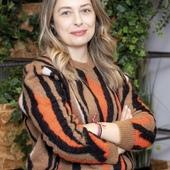
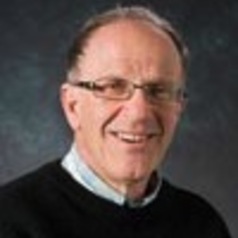
Dennis Altman
Professorial Fellow in Human Security, La Trobe University
Dennis Altman is a writer and academic who first came to attention with the publication of his book Homosexual: Oppression & Liberation in 1972.
This book, which has often been compared to Greer’s Female Eunuch and Singer’s Animal Liberation was the first serious analysis to emerge from the gay liberation movement, and was published in seven countries, with a readership which continues today.
Since then Altman has written eleven books, exploring sexuality, politics and their inter-relationship in Australia, the United States and now globally. These include The Homosexualization of America; AIDS and the New Puritanism; Rehearsals for Change, a novel (The Comfort of Men) and memoirs (Defying Gravity). His book, Global Sex (Chicago U.P, 2001), has been translated into five languages, including Spanish, Turkish and Korean. In July 2013 UQP will publish his latest book, The End of the Homosexual?
Most recently he published Gore Vidal’s America (Polity) and Fifty First State? (Scribe).
Altman was Professor of Politics and Director of the Institute for Human Security at LaTrobe University in Melbourne, and is now a Professorial Fellow at La Trobe. He was President of the AIDS Society of Asia and the Pacific (2001-5), and a member of the Governing Council of the International AIDS Society [2004-12].
In 2005 he was Visiting Professor of Australian Studies at Harvard, and was a Board member of Oxfam Australia. In 2007 he was made a member of the Order of Australia.
Less ![]()

Dennis Del Favero
ARC Laureate Fellow and executive director, iCinema Research Centre, UNSW Sydney
Scientia Professor Dennis Del Favero is an Australian Research Council Laureate Fellow, Chair Professor of Digital Innovation at UNSW (Sydney, Australia) and a former Executive Director Australian Research Council | Humanities & Creative Arts. He is also Executive Director of iCinema Centre for Interactive Cinema Research (iCinema); Senior Visiting Fellow at the Royal College of Art (London, UK) and Member of Editorial Committee of Quodlibet Studio Corpi (Rome, Italy). Del Favero is internationally recognised as an innovator in the field of visual art using cutting edge technology. His collaborative research program comprises art led work across the fields of humanities, engineering and science, exploring extreme climate events using advanced AI visualisation systems. His research has been widely exhibited in major group exhibitions including International Symposium of Electronic Art, Art Cologne, International Film Festival Amsterdam, Biennial of Seville, Battle of the Nations War Memorial Leipzig (joint project with Jenny Holzer) and Sydney Film Festival, and in solo exhibitions in museums and galleries such as Sprengel Museum Hannover, ViaFarini Milan, Neue Galerie Graz and ZKM Karlsruhe. His work is represented by Galerie Brigitte Schenk, Cologne and Kronenberg Wright Artists Projects, Sydney.
Less ![]()
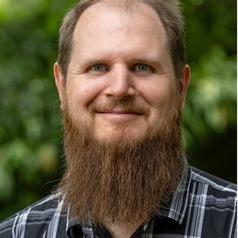
Dennis Golm
Lecturer in Psychology, University of Southampton
Dr Dennis Golm is a Lecturer in Psychology at the University of Southampton and Editor-in-Chief of Adoption & Fostering.
His main research interests lie within the field of developmental psychopathology. He is interested in the mechanisms through which early risk factors, especially early adverse experiences such as institutional deprivation and childhood maltreatment in general, contribute to the emergence of mental health problems later in life. He is especially interested in biological markers of early adversity.
He teaches lectures in developmental and clinical psychology, and in developmental psychopathology. He leads the optional third year undergraduate module “Childhood maltreatment and mental health”.
He is the programme lead for the Education Mental Health Practitioner Programme. He further co-leads the outreach project NeuroKids. The project educates young children about the brain through educational videos and school workshops.
Less ![]()
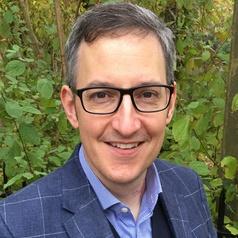
Dennis Grube
Professor of Politics and Public Policy, University of Cambridge
Dennis C. Grube is a Professor of Politics and Public Policy at the University of Cambridge, where he is also the research lead in political decision-making at the Bennett Institute for Public Policy.
Dennis’ research interests include political and administrative leadership, political rhetoric, the Westminster system of government, the processes of public policy decision-making, and institutional memory.
Less ![]()
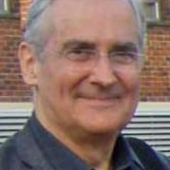
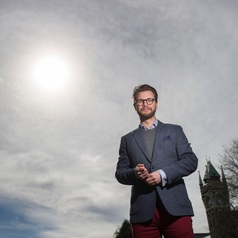
Dennis Wesselbaum
Associate Professor, Department of Economics, University of Otago
Dennis is an Associate Professor in Economics at the University of Otago, the President of the New Zealand Association of Economists, and Associate Editor of Humanities & Social Sciences Communications.
Dennis is a theoretical macroeconomist by training but has both theoretical and empirical interests across various fields. His research activity is split between macroeconomic topics and the interaction between climate, environment and society. His research is interdisciplinary in nature and covers macroeconomics (especially monetary and fiscal policy), economic development, labour, health and environmental impacts.
He earned a Diploma in (Theoretical) Economics from the University in Kiel and received his Doctorate (Doctor rerum politicarum) from the University of Hamburg. In between, he worked as a researcher for the Kiel Institute for the World Economy.
Less ![]()
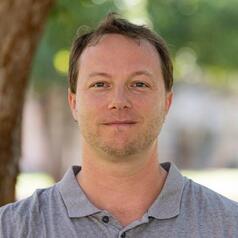
Dennis Wise
Professor of Practice in English Literature, University of Arizona
I'm a prolific scholar of fantasy, science fiction, and the Inklings -- JRR Tolkien and CS Lewis in particular. I'm also the editor for SPECULATIVE POETRY AND THE MODERN ALLITERATIVE REVIVAL: A CRITICAL ANTHOLOGY (Fairleigh Dickinson UP, 2024), a book that aims to explain and outline the prevalence of a contemporary revival in medieval alliterative poetics.
My academic articles have appeared in almost every major journal dedicated to SF and fantasy, and I've also written around two dozen reviews and encyclopedia articles. I served five years as the reviews editor for FAFNIR; in 2020, we became the first academic journal to ever win a World Fantasy Award. I've also won the May Kay Bray Award from the Science Fiction Research Association.
Less ![]()
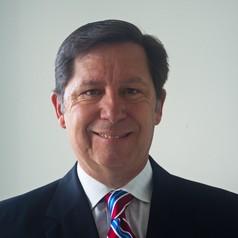
Dennis B. Desmond
Lecturer, Cyberintelligence and Cybercrime Investigations, University of the Sunshine Coast
Dr Dennis Desmond holds a PhD in human factors and sociotechnical systems focused on cyber and financial technologies to disrupt cryptolaundering activities. Dr. Desmond is a lecturer with the University of the Sunshine Coast in Cybersecurity and a Research Analyst developing oppositional human factor darknet interventions. Dr. Desmond served as a special agent for the United States Army and Federal Bureau of Investigation and as a Senior Intelligence Officer with the Defense Intelligence Agency, specializing in identity management.
Less ![]()
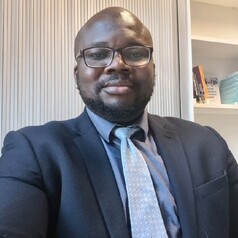
Dennis Gabriel Pepple
Associate Professor and Director for Employability and Enterprise at the School of Business, University of Leicester
I am an associate professor in HRM data analytics and interpretation and director for employability and enterprise at the School of Business. Prior to this I was a senior lecturer in human resource management at the University of Hertfordshire. I hold PhD in business and management studies from the University of Huddersfield. I am member of the Chartered Institute for Personnel and Development (MCIPD), a senior fellow of the Higher Education Academy (SFHEA) and a certified management and business educator (CMBE). My research interest is in the areas of diversity management, employment relations and work psychology. I have published my research in quality peer reviewed journals and I have won awards for best paper at different internationally recognised conferences.
Less ![]()
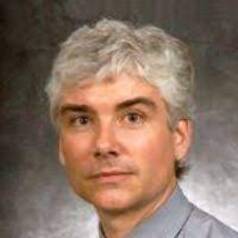
Dennis M. Gorman
Professor of Epidemiology and Biostatistics, Texas A&M University
Professor (with tenure). July, 2006 – present. Department of Epidemiology & Biostatistics, School of Rural Public Health, Texas A&M Health Science Center. Teach classes on epidemiological methods, social epidemiology, and research integrity. Conduct research on research integrity and application of procedures intended to improve this in published research.
Less ![]()
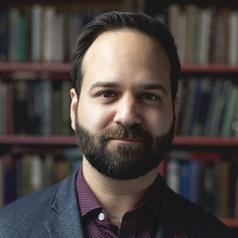
Dennis V. Perepelitsa
Associate Professor of Physics, University of Colorado Boulder
The experimental nuclear physics group at the University of Colorado studies the properties of the strong nuclear interaction, one of the four fundamental forces, under extreme conditions. When ordinary nuclear matter is subjected to sufficiently high temperatures and densities, the sub-atomic quark and gluon particles which comprise it become free and form a quark-gluon plasma (QGP). In the first few microseconds after the Big Bang, all the quarks and gluons which would eventually condense into the nuclear matter we see around us existed in a QGP phase. Thus, studying this phase of matter allows us to explore the properties of the Early Universe. We can create these high-temperature, high-density conditions at particle colliders around the world such as at the Large Hadron Collider (LHC) or Relativistic Heavy Ion Collider (RHIC). In these machines, large nuclei (called heavy ions) are accelerated to energies equal to several hundred or thousand times their rest mass and brought into a head-on collision, creating a droplet of primordial QGP.
Our group is involved in the Heavy Ions program at the ATLAS Experiment at the LHC, situated at CERN in Geneva, Switzerland. The LHC collides pairs of nuclei and nuclei with protons at TeV-scale energies, producing the hottest matter ever made on Earth (over five trillion Kelvin). Within ATLAS, we participate in operational data-taking at the LHC and in offline data analysis. In addition, we are involved in building the next-generation collider detector for nuclear physics, the sPHENIX Experiment at RHIC, situated at Brookhaven National Laboratory in Long Island, NY. RHIC is a versatile machine which can collide a variety of nuclear species and investigate the QGP under conditions closer to the phase transition temperature than the LHC. Our work for sPHENIX includes experimental beam tests of calorimeters, development the electronic trigger system, and simulations work.
My particular research areas are: (1) understanding how high-energy quarks and gluons lose energy as the traverse the QGP using reconstructed jet, electroweak, and heavy flavor probes; (2) finding the limiting system size or conditions under which traditional signatures of QGP formation appear or disappear; and (3) exploring the momentum and spatial structure of nuclei in small collision systems where a sizable region of QGP is not expected to be formed.
Less ![]()
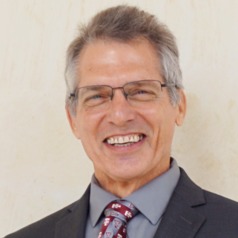
Dennis W. Jansen
Professor of Economics and Director of the Private Enterprise Research Center, Texas A&M University
Dr. Dennis Jansen is a Professor of Economics and Director of the Private Enterprise Research Center at Texas A&M University and is currently the Mary Julia and George R. Jordan Jr. Professor of Public Policy in Economics. He received his Ph.D. in Economics from the University of North Carolina at Chapel Hill and his undergraduate degree in economics and mathematics from St. Louis University. His research focuses on macroeconomics, financial economics, forecasting, and the economics of education. He has received grants from the National Science Foundation and has worked for the Texas Education Agency to study the Texas school finance formula, and to evaluate both the Texas Educator Excellence Grant program and the Texas District Award for Teacher Excellence program. Professor Jansen was a Fulbright Scholar in 2008, lecturing and conducting research in Ireland. At Texas A&M University Dr. Jansen has served as Department Head, Director of Graduate Programs, and Director of Undergraduate Programs. He has also held research or teaching positions at the National University of Ireland-Galway, the Federal Reserve Bank of St. Louis, Indiana University-Bloomington, North Carolina State University, Korea University, Southwest University of Finance and Economics (China), Erasmus University Rotterdam, Catholic University Leuven, and Maastricht University.
Less ![]()
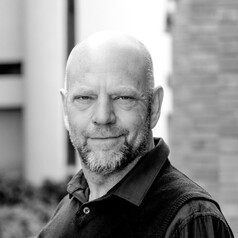
Deon van Niekerk
Senior Instrument Scientist (SIS) and Manager Electron Microscopy Unit, Rhodes University
Interests:
Analysis of inorganic materials; Extraterrestrial Petrology; Mineral Exploration; Economic Geology.
Less ![]()
- Market Data




















